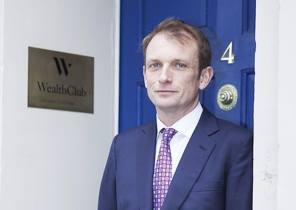

Investors have placed £466m into Venture Capital Trusts (VCTs) so far this tax year towards a target of £819m, according to data compiled by Tilney.
The data shows of the £466m raised to date £129.7m has been raised by the Octopus Titan VCT, the biggest by far.
The Foresight 4 and Proven VCTs raised £33.7m and £29.7m respectively, while Albion raised £31m.
So far this tax year £163m has been raised by trusts who have reached their limit and closed, while £303m is in vehicles still open for investment.
Firms are still looking for £193m in capital until tax year end, alongside a potential £160m in over-allotment.
Jason Hollands, managing director at Tilney, said VCT fund raising was down by about a quarter compared with this point last year.
He said: "That’s not surprising given clear evidence of great caution towards risk assets by investors and particular wariness towards UK assets.
"That said, demand has held up better than unit trust and Oeic sales, which suggests the tax reliefs on VCTs do provide a structural underpin to the market, especially for those investors who now have much more limited pension options due to the tapered annual allowance."
Fundraising this tax year is happening in the wake of changes to the rules around which companies qualify for tax breaks, as the Treasury aims to prevent the trusts from investing in lower risk assets that the government views as not worthy of tax breaks.
Investors in newly issued shares of VCTs receive an income tax break of 30 per cent if the shares are held for five years, and all income and capital gains earned from the investments is exempt from tax.
But VCTs are no longer permitted to invest in management buyouts and certain other sectors, such as some media investments.
One VCT that is fundraising right now is Triplepoint, which invests in the debt of companies. The manager of the VCT said a particular focus of the trust was technology businesses.
Mr Hollands said the problem for firms like Triplepoint was that they used to invest in a very low risk way, and this investment approach will be much more difficult under the new rules.
Alex Davies, founder of tax efficient investment specialist Wealth Club, said: "Last year a huge amount of VCT businesses came in in November, much earlier in the year as there was a Budget where the rules changed.
"Brexit may mean we don’t get as much fundraised as last year. This week in particular has been very quiet for example, which may be because people just don’t want to invest in the UK.
"But last year wasn’t a normal year, and this year's figures are up on the year before last."
david.thorpe@ft.com



